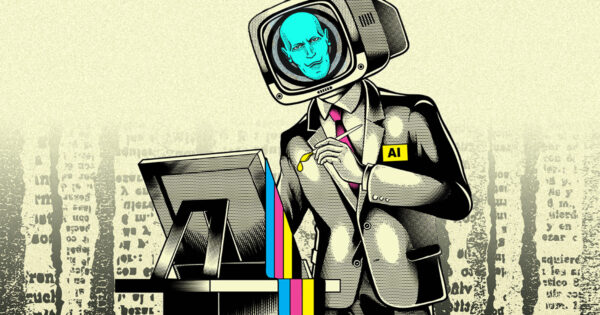Publishers Disguising Gen AI Content material Danger Business and Reputational Blowback

[ad_1]
As Sports activities Illustrated is discovering, the repercussions of disguising generative synthetic intelligence content material can vary from acute, measurable declines in income to extra intangible lack of model worth.
Since information of the gen-AI content material snafu surfaced Tuesday, the share worth of the publicly traded Area Group has dropped 20%, wiping out tens of millions of {dollars} in worth, based on public filings. Sports activities Illustrated’s model is owned by Genuine Manufacturers Group however operated by The Area Group.
“The overarching level is that there must be transparency,” stated Eunice Shin, associate at digital technique agency Prophet. “That is completely on the minds of advertisers and businesses. No person needs to be duped.”
Expertise writer Futurism reported this week that Sports activities Illustrated, working with vendor AdVon Commerce, created faux profiles of workers writers, after which used gen AI to create and publish shopping for guides monetized by affiliate hyperlinks below the imaginary authors’ bylines.
Different publishers, together with Gannett property Reviewed and Purple Ventures title CNET, have additionally lately been outed for publishing gen-AI-created content material below the bylines of made-up workers writers.
Representatives for Sports activities Illustrated, Reviewed and CNET denied any wrongdoing. AdVon didn’t reply to a request for remark.
Whereas publishers—more and more challenged by distribution gatekeepers and a tender advert market—ought to experiment with the know-how, readers need to know the provenance of the content material they’re consuming, stated Shin. In deceptive readers, publishers threat additional worsening the declining stage of belief customers have within the media.
Being duped can tarnish these publishers’ manufacturers, leaving them vulnerable to incurring each business and reputational blowback, based on model marketing consultant Ben Dietz. Promoting depends on belief and model fairness, and opaque enterprise practices instantly undermine these tenets.
Business and reputational threat
However in a extremely saturated media ecosystem, publishers additionally rely closely on the cachet of their model to draw readers and safe advertisers, based on Max Willens, a senior analyst at Insider Intelligence.
“Until you might be one of many few publishers whose content material attracts a vital mass of priceless viewers, all publishers have left is their model,” Willens stated. “Something you do to jeopardize that could be a mistake, and you must contemplate whether or not any short-term profit is value that threat.”









